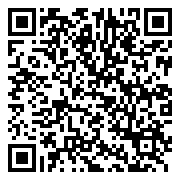Conference Day 1: (In)visible Displacement in the Horn of Africa: concepts, consequences, experiences
This is a virtual event.
Register in advance for this meeting:
https://yorku.zoom.us/meeting/register/tJMucOuhrT4jGtcz1vV74liah6DDmQCkefyv
After registering, you will receive a confirmation email containing information about joining the meeting.
Please visit https://www.yorku.ca/crs/hoa/ for the daily schedule, speaker profiles and abstracts.
*******
The greater Horn of Africa (HoA), and the related political bloc known as the Inter-Governmental Authority on Development (IGAD) Region which constitutes Ethiopia, Sudan, South Sudan, Somalia, Djibouti, Eritrea, Kenya, and Uganda, is experiencing its worst humanitarian and environmental disasters in several decades. The Region is experiencing a fourth consecutive failed rainy season caused by the La Niña weather phenomenon, which has generated extreme drought conditions that have curtailed agricultural production, destroyed crops, and killed more than 3 million livestock, threatening the livelihoods and lives of millions of farmers and pastoralists. Across the region, more than 20 million people, currently face starvation, and nearly 6 million children under the age of five are acutely malnourished.
The Horn is also one of the most conflict-affected regions of the world. Each country in the Horn has experienced some measure of political strife for decades. From revolution in Sudan to civil war in Ethiopia, from Somalia's political stalemate to South Sudan’s protracted conflict, the region is in turmoil. Due to the combination of political economy and environmental factors, this Region currently hosts roughly 4.5 million refugees and asylum seekers, along with around 12.3 million Internally Displaced Persons (IDPs) (IGAD report). The Norwegian Refugee Council's list of the ten most neglected displacement crises in the world in 2022 includes DR Congo, Burkina Faso, Cameroon, South Sudan, Chad, Mali, Sudan, Nigeria, Burundi, and Ethiopia, all in Africa, including three countries from the Horn of Africa Region.
There is one key thread that seems to tie up the unfolding crisis in the Horn of Africa region, which is what Jesper Bjarnesen & Simon Turner call “invisibility” (2020). In the face of the lack of ideological importance attached to displaced and refugees from Africa, the HoA region seems to have been tucked under the rug. This invisibility is characterized among others, by a lack of media attention and inadequate academic and service provision, the latter confounded by funding gaps, for the people affected. Due to North-South imposed homogenization, there is also a reluctance to understand the lived experiences of discrimination - ethnic, racial, religious, and gender – in the African context, and how such ‘intersectional’ factors can catalyze and exacerbate the conditions of displacement.
This virtual conference, hosted by York University’s Center for Refugee Studies, aims to bring together academics/researchers and service providers to explore the silencing of HoA.
Themes:
- The political economy of forced displacements in the HoA region.
- Horrid Invisibility: State Terrorism, Hidden Displacements, and the Suffering of Oromos in Ethiopia, Professor Kuwee Kumsa, School of Social Work, Wilfrid Laurier University, Canada, and Mr. Dinku Korsa, Officer, Waterloo Catholic District School Board
- Violence against the Karrayyu and their displacement, Roba Jilo, PhD candidate, Tufts University, USA
- Internal displacement: clarifying the concept and understanding the consequences of internal displacement.
- In Search of the Invisible People: Revisiting the Concept of “Internally Displaced Persons” in Light of an Ethiopian Case Study, Dereje Tesema, Doctoral candidate, Ghent University, Belgium
- Social consequences of conflict-induced internal displacement in Ethiopia: the case of Adama city and Sabata town of Oromia Region, Lamesa Abdissa, Doctoral Candidate, Addis Ababa University, Ethiopia
- National, regional, and global organizations’ response to (or lack thereof) the displacement and refugee crisis in the HoA
- Role of Intergovernmental Organizations to address the challenges faced by IDP and refugee population, Ibrahim Kaso, IGAD Refugee Support Operations Coordinator, Djibouti
- Gendered displacement and refugee crisis
- What about the Girls? Putting Gender in the Frame, Professor Saida M. Abdi, School of Social Work - University of Minnesota-Twin Cities
- Racisms and Discrimination – Speaking back to Northern Silence
- Professor Dulo Nyaoro, Senior Lecturer, Department of History, Political Science and Public Administration, Coordinator, Peace Centre Moi University.
- Experiences of racialized Oromo refugees born to displaced/stateless parents in Saudi Arabia, Gemechu Abeshu, Postdoctoral Fellow, York University
This conference is sponsored by the Centre for Refugee Studies, York University; the Canada Research Chair in Citizenship, Social Justice and Ethno-racialization; LERRN.
Conference Organizers: Dr. Gemechu Abeshu; Dr. Christopher Kyriakides

